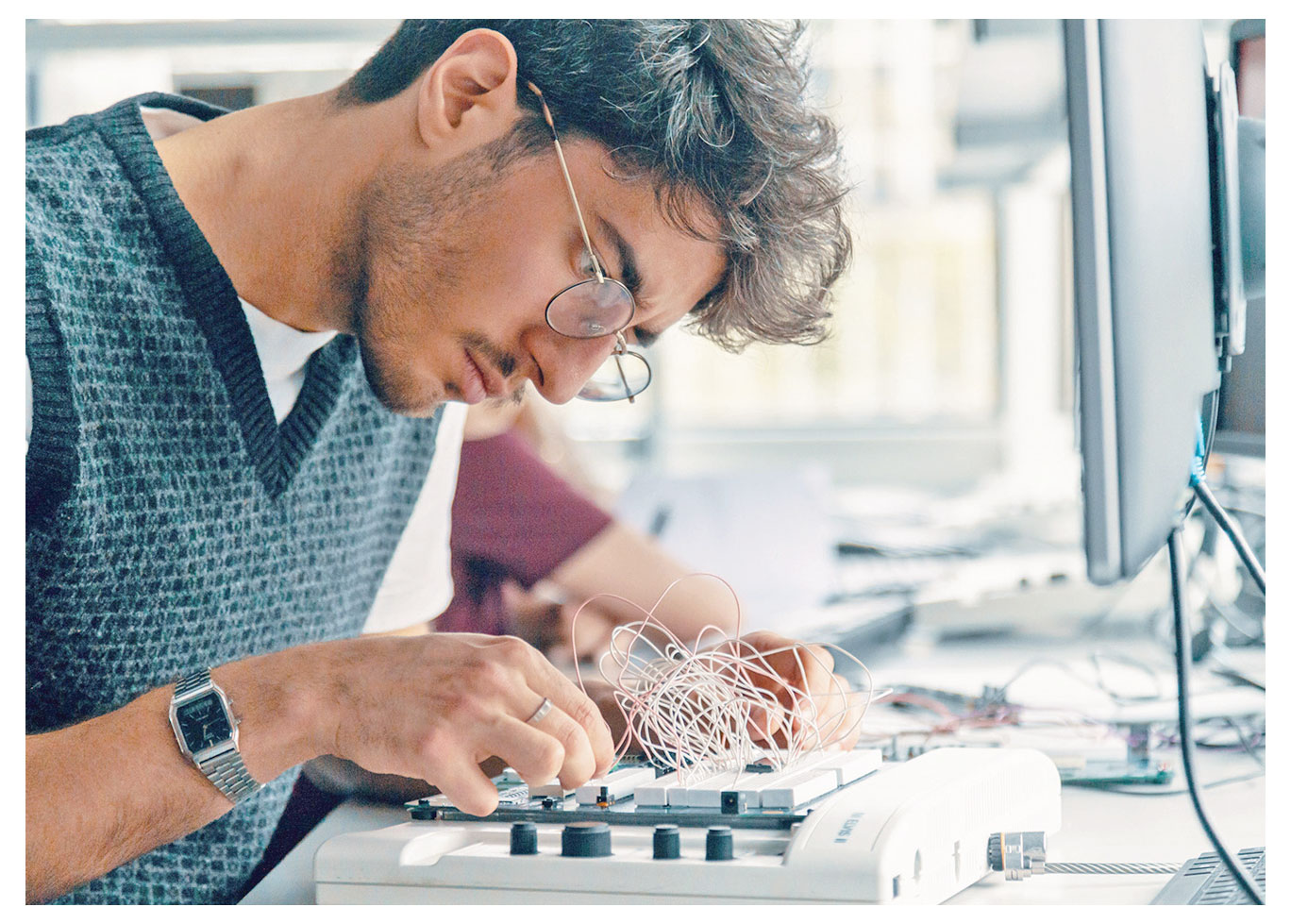
Mohammad Rukanuddin
In today’s data-driven world, knowledge is potency. The new generation is striving to understand and navigate this boundless ocean of data in many ways. Among them, a BSc degree in CSE can be an effectual key that can help them unlock a universe of tremendous knowledge. In fact, it is not a mere university degree. It is a tool to unite students with ideas, innovations and opportunities from all over the world.
The internet is like an infinite library of information that facilitates research and enhances human experience. Computer scientists and engineers design and maintain this vast network. What they accomplish by writing software, designing algorithms, and building systems allows everyone to click, search, and connect. A degree in CSE provides one with a basic understanding of how this virtual world functions. It explores computer languages, the logic behind how they operate, and the rules behind how information can travel around the globe in a matter of milliseconds. I would say, without it, most of the world's knowledge within our reach would be off-limits.
Besides the internet itself, graduates in CSE are at the centre of every data- and technology-based field. In science, ranging from astrophysics to genetics, scientists utilise sophisticated computing hardware in order to process large sets of data, model complicated phenomena, and disseminate their results to the world. A CSE degree does not only educate one about computers; it educates one on how to create tools to enable scientists to find new things, thereby expanding human knowledge overall.

In the field of medical science, CSE professionals develop safe systems to keep patient histories, develop disease-diagnosis AI, and develop telemedicine platforms to allow doctors to consult patients around the globe. This directly results in better health outcomes and a better world healthcare system, with computer science being its foundation.
All the business community has been transformed by CSE. Sellers and buyers are connected via e-commerce sites, supply chains are streamlined by sophisticated algorithms, and financial markets exist via computer software for trading. A CSE alumnus understands the structure of these systems and is very helpful in shaping the world economy and the exchange of goods, services, and financial information across borders.
In addition, a CSE degree teaches a distinctive mode of thinking: computational thinking. This is solving complex problems by taking them apart into smaller bites, recognising patterns, constructing step-by-step solutions, and testing their effectiveness. This isn't solely applicable to programming; this is a worthwhile set of skills to have for any problem, be it a problem in your hometown or an awareness of a trend in global politics. It encourages rationality and critical thinking, two skills that are the key to navigating successfully the wide and complex informational landscape.
The other key factor here is the international orientation of the CSE field as a whole. Software development is generally a collaborative activity with teams spread geographically across the globe. Open-source initiatives bring together developers from diverse backgrounds into a single mission. This kind of environment automatically exposes CSE students and practitioners to diverse cultures, thought patterns and problem-solving methods, and it broadens their vision and enhances their international awareness.
A BSc in CSE is really more than a professional qualification. It enables a person to be a consumer of the knowledge of the world but, most importantly, contribute to its knowledge. It is the vision in terms of which one sees and participates in the digital age so that the graduates are able to take active roles in shaping our global future. It is actually a powerful gateway to global knowledge, a gateway to boundless learning, innovation, and communication.
_____________________________________
The writer is Assistant Professor of English at Ahsanullah University of Science and Technology, Dhaka

